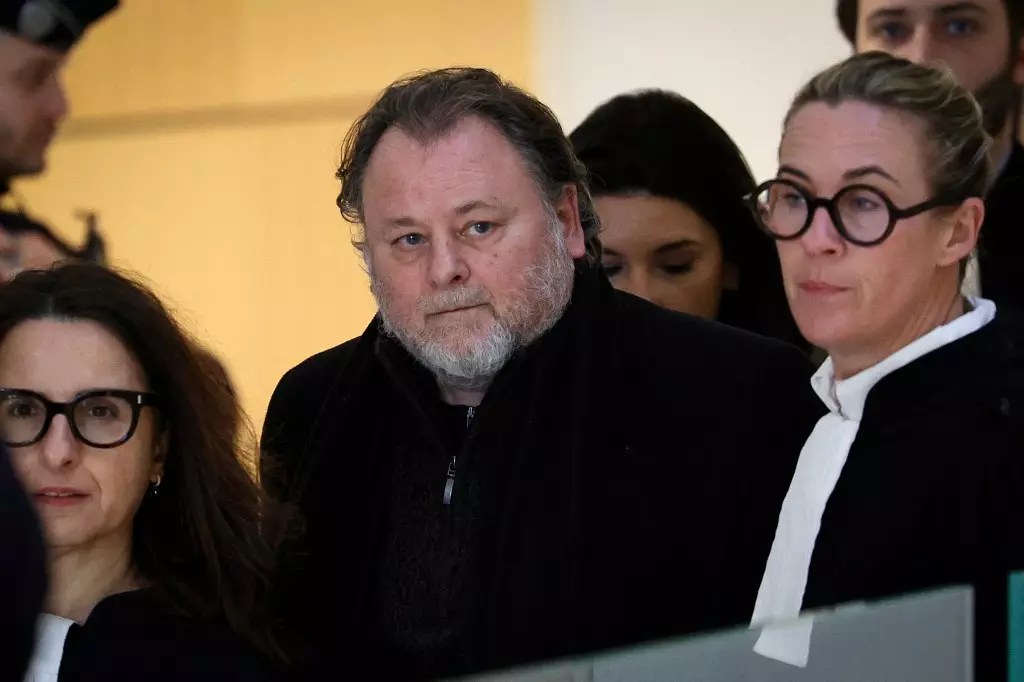The landmark trial of French director Christophe Ruggia has triggered significant discourse surrounding sexual misconduct in the film industry. Ruggia was sentenced to two years under house arrest and an additional two years suspended, following the damning accusations made by actress Adèle Haenel. This verdict marks a pivotal turn in the ongoing battle against sexual assault within the arts, placing the spotlight on how the industry handles such serious allegations. When the Paris prosecutor’s office called for a five-year prison sentence, the implications were clear; society is growing less tolerant of those in power who misuse their positions.
Haenel, whose courage to speak out in 2019 ignited heated discussions, accused Ruggia of assaulting her from the age of 12. The trial laid bare not just the specifics of this case but also the broader, systemic issues of sexual misconduct that have pervaded the film industry for decades. The public’s interest in issues such as these reveals a changing social landscape, where accountability is demanded for those guilty of abuse.
Adèle Haenel’s decision to come forward with her story was nothing short of revolutionary, especially in 2019 when the #MeToo movement was still gaining momentum. Breaking the silence around such personal and traumatic experiences in a climate where victims often face stigma, her revelation inspired many to reconsider the status quo and question industry practices. At the time, Haenel faced substantial resistance; her accusations were met with skepticism, and the French film landscape remained largely indifferent.
It’s vital to acknowledge the societal risk Haenel took. Calling out a respected director could easily lead to the end of her career amid an environment that often protected the powerful at the expense of the vulnerable. The degree of backlash she faced echoes the experiences of many survivors who fear retribution and ostracization in the workplace.
Ruggia’s defense hinged on claims that Haenel’s accusations stemmed from “revenge” rather than actual events, primarily because he had not cast her in a subsequent film. Such assertions detracted from the core of the accusations and illustrated the frequently dismissive attitudes of perpetrators toward the severe implications of their actions. These arguments, often centered around victim-blaming, expose the persistent biases and misunderstandings about sexual assault that continue to exist.
During the trial, emotional confrontations also punctuated the proceedings; Haenel’s outburst, “Shut your mouth!” emphasized the frustrations many survivors might feel when their experiences are trivialized or misconstrued. This moment underscored the complex dynamics of power and vulnerability that often characterize trials focused on sexual misconduct.
The aftermath of Haenel’s revelations has seen a gradual shift in how sexual misconduct is treated within the French film industry. Landmark changes, such as the Césars Academy’s new rule barring those under investigation for sexual violence from eligibility for awards, signal an important move towards accountability. Nevertheless, while these changes are vital, they do not erase the initial discomfort or the industry’s longstanding complacency toward predators.
Such modifications suggest that Haenel’s protests have initiated conversations that couldn’t have happened before. They reflect an awakening within the industry, led by actresses like Judith Godrèche. Godrèche’s own brave admission of assault has revived the dialogue around #MeToo in France, reinforcing that the fight for justice and equity is far from over.
Haenel’s departure from the film industry, motivated by its persistent culture of complacency toward sexual violence, underscores a crucial point: industry reform is necessary but insufficient if the underlying attitudes are not addressed. The film community must continue to reflect on its treatment of women and work to develop an environment conducive to honesty and transparency.
The case of Ruggia and Haenel symbolizes not only a turning point for the French film industry but also serves as a beacon for other industries grappling with similar issues. As conversations around sexual misconduct evolve, so too must the platforms meant to produce and celebrate art. It is only through complete accountability that the shadows of silence can finally be dispelled.


Leave a Reply